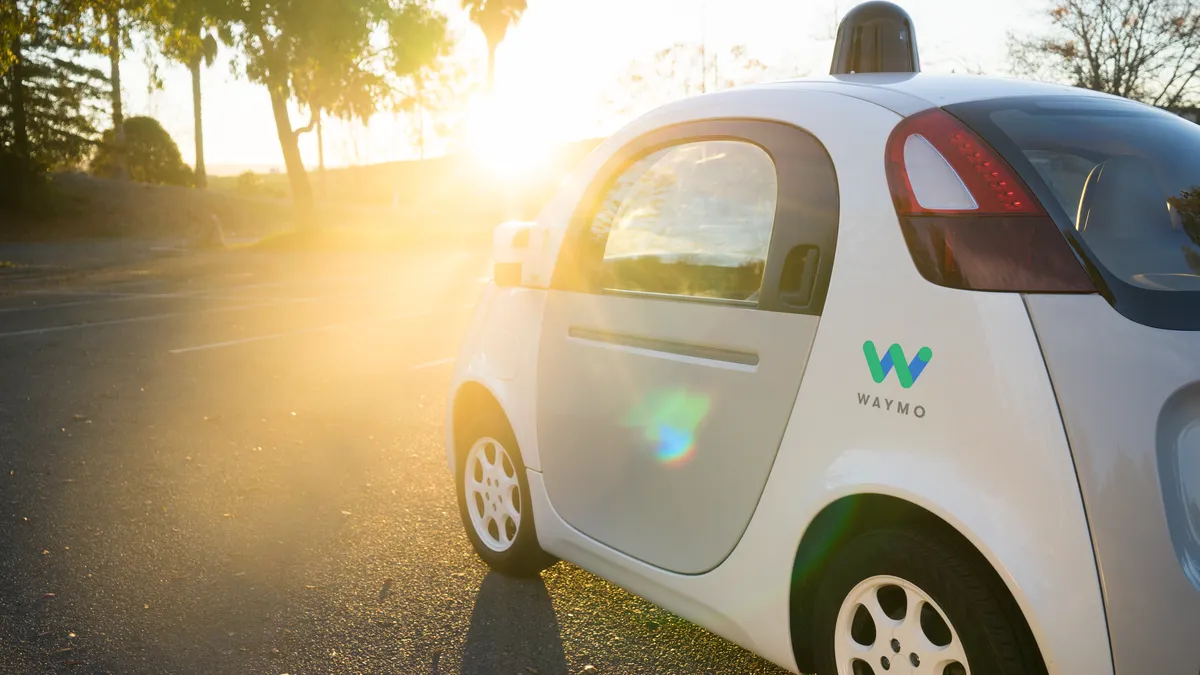Dive Brief:
- Waymo is testing new in-car entertainment features, including Wi-Fi access, for passengers in its driverless car taxi program known as Waymo One.
- The Wi-Fi is limited to a select number of riders who test new features for the company and provide feedback on the rider experience before it is expanded to the public. A spokesman said the company had no details about incorporating Wi-Fi or other features into public commercial service.
- Waymo has also offered riders access to ad-free streaming music through Google Play, temperature control and child seats, according to Reuters, which first reported the Wi-Fi availability.
Dive Insight:
Moves from the Waymo One service, which opened to passengers in the Phoenix area in December, will be closely watched by competitors exploring autonomous ride-hailing networks.
Waymo One has had a slow roll-out, which has allowed it to beta-test safety and convenience features. For example, a spokesman said that early test riders were the first to get access to Google Play music integration before it was expanded to public service this spring.
The Wi-Fi access will be the same — a small number of test riders will use it and give feedback before the company decides whether to offer it to all riders. The testers are barred from speaking publicly about their experience, but two participants confirmed to Reuters they had seen laminated fliers with Wi-Fi instructions.
Since most customers can access the internet through their smartphones, it’s unclear what new benefit the service will offer in the short term, especially for the relatively short taxi trips. However, when autonomous vehicles break through, they will allow riders to reshape their commutes and use that time for other activities, some of which could require internet access.
A 2017 paper from the journal Challenges found that people with long commutes had to cut back on work, sleep and watching TV, suggesting that the commuting time in an autonomous vehicle could be used to catch up on those three activities. Some automakers, like Toyota, are even exploring how autonomous vehicles could function as offices.
Eric Williams, a professor at the Rochester Institute of Technology's Golisano Institute of Sustainability and a co-author of that paper, said in an email that internet access is just the start for equipment for autonomous vehicles. To allow for more work, he said, the cars "ought to have places to plug in your devices" and fold out screens and keyboards or controllers for games.
Waymo's first step of offering Wi-Fi access, he added, may not be helpful if Waymo limits itself to taxi service. However, if the company sold AVs, he said, "offering these features in their taxis could be [a] good way to hook consumers on the convenience."











